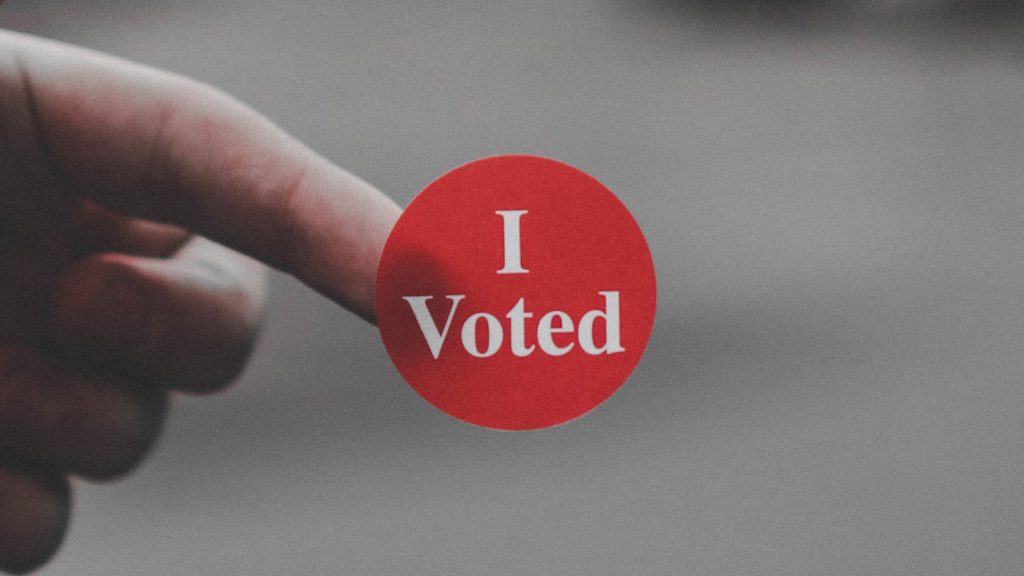Nothing is permanent, so everything is precious. Here’s a selection of some happenings—fleeting or otherwise—in the Buddhist world this week.
Free Art for Voters
Money-conscious museum-goers should hold on to that “I Voted” sticker after hitting the polls on Election Day. The Rubin Museum in New York City is offering free admission to anyone who casts a ballot in the midterm elections and brings the sticker to prove it. The museum is closed on Tuesdays, so the offer will be available for voters the following day, on Wednesday, November 7. And if the political world has you stressed out, stop in for their lunchtime meditation session, which is included in the general admission.
Karmapa Seeks Liberation from Airport Bureaucracy
Karmapa Ogyen Trinley Dorje, one of the two claimants to the head of the Karma Kagyu lineage of Tibetan Buddhism, has found a creative way to overcome his travel woes—by getting a passport from the Caribbean island nation of Dominica. Phayul.com reports that immigration officials sometimes reject the Identity Certificate issued to Tibetan refugees in India, often disrupting the religious leader’s frequent travel plans. To avoid this headache, the Karmapa acquired a new passport from the Commonwealth of Dominica in March and has since used it to apply for an Indian visa, which may be integral to his plans to return to the country for a meeting of Tibetan leaders. The Karmapa has been living in the United States for more than a year as he received treatment for an undisclosed medical condition.
Mongolian Schools Ban Halloween
Mongolia has banned the celebration of Halloween in schools because officials fear that the holiday is displacing Buddhist traditions, Reuters reports. Halloween has become increasingly popular in Mongolia since the country’s communist regime fell in 1990, leading to a surge in foreign investment that has brought cultural influences along with it, according to the news outlet. The week before Halloween, the Mongolian education ministry sent a message to schools to put an end to spooky costumes and other festivities, arguing that the holiday was not officially recognized and citing parental concerns, Reuters reports.
Nara Temple Hall Rebuilt After 301 Years
In 1717, the Central Golden Hall at the Kofukuji temple in Nara, Japan, burned down, but earlier this month, the hall was finally restored, the Asahi Shimbun newspaper reports. A ceremony was held on October 7 to celebrate the rebuilt hall, which has burned down seven times since its original establishment in 714 CE. At the ceremony, chief priest Tagawa Shunei cited a Japanese proverb about resilience, saying, “Fall down seven times, get up eight.”
The Kofukuji temple, one of Nara’s Seven Great Temples, practices Hosso Buddhism, one of the six schools of the Nara period (710–794), only three of which (including Kegon and Ritsu) are still around today. (Hosso is an extension of the Chinese Faxian school, which is named after its founder, a pilgrim-monk who chronicled his incredible journey to Buddhist sites from China to Sri Lanka.)
Dharma Master Offers Peace Meditation at Global Faith Conference
The Parliament of the World’s Religions (PoWR), a global gathering of faith leaders that takes place every three years, ended the first day of its conference in Toronto with remarks from Dharma Master Hsin Tao, who offered a peace prayer and meditation, according to the Associated Press. Hsin Tao, the founder of Ling Jiou Mountain Wu Sheng Monastery in Taiwan, capped the day’s events with the brief meditation aimed at creating a ground for “true peace of heart and compassionate action in the world,” according to the PoWR website. The six-day gathering runs from November 2–6.
Master Hsin Tao has also offered some wisdom in our Winter 2018 issue, which hit newsstands this week. In our special section “Meditation Off the Beaten Path,” he explains the Chan Buddhist practice of listening to silence.
Thank you for subscribing to Tricycle! As a nonprofit, we depend on readers like you to keep Buddhist teachings and practices widely available.
